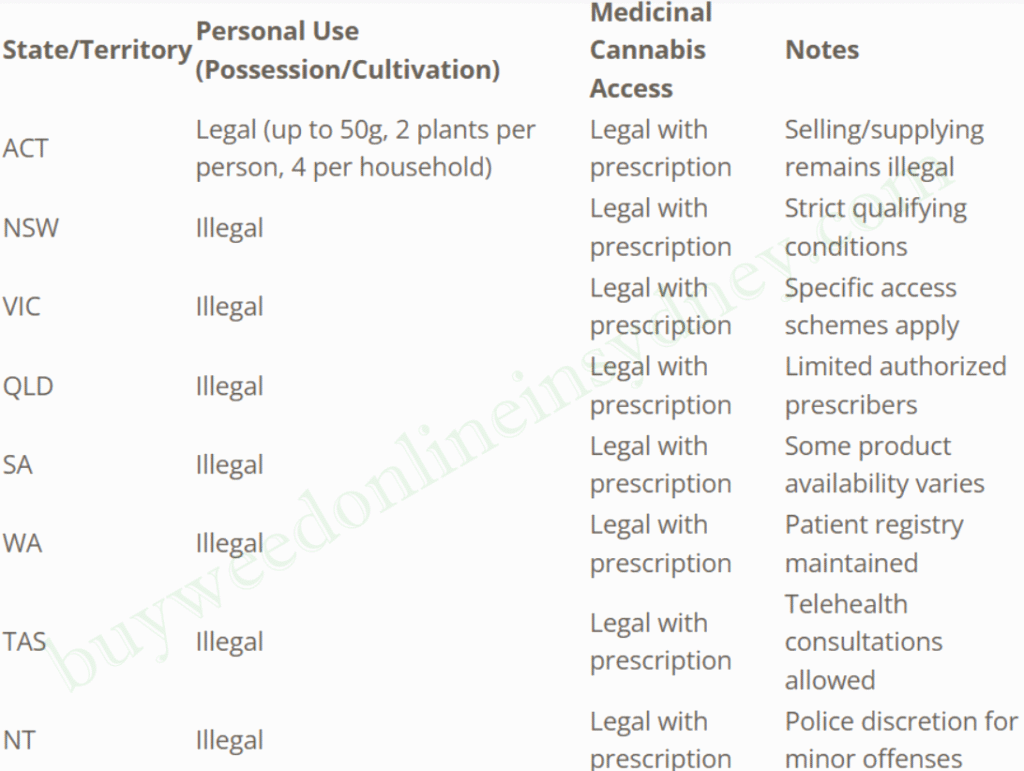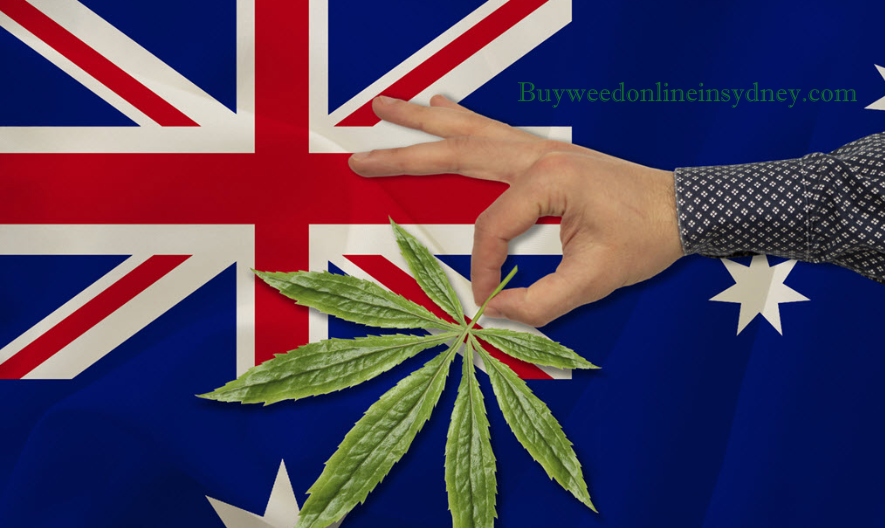On this page, you will find a comprehensive guide to Australia cannabis laws. So, as a Cannabis user who is based in Australia, or if you are a tourist and you are wondering if Cannabis is legal in Australia, you will be guided on how cannabis is regulated in Australia, including federal laws, state law variations, key regulatory bodies, and Australia’s cannabis importation rules.
Structure of Australia’s Cannabis Laws
The legal structure governing cannabis in Australia is complicated, with federal, state, and municipal regulations all having an impact.
Federal vs. State vs. Local Laws
Australia operates under a federal system, meaning cannabis laws are enforced at three levels.
The Federal laws in Australia regulate the general legality of medicinal cannabis and regulate the importation, manufacture, and cultivation of cannabis.
The state and territory legislation in Australia determines and grants permission for personal use, possession, and local business operations. However, different states in Australia have different laws, which affect how they are enforced and what the consequences are.
Most businesses that deal with cannabis must abide by both state and local laws, which are applicable to zoning, licensing, and commercial operations.
Where Is Cannabis Legal in Australia
For Personal Use:
Except for the Australian Capital Territory, the majority of Australian states and territories still prohibit personal cannabis cultivation. Adults in the Australian Capital Territory (the “ACT”) are only permitted to grow up to four plants per household and also possess up to 50 grams of dried cannabis. However, selling, distributing, or sharing cannabis is still prohibited, though.
Moreover, personal cultivation and recreational use still remain illegal or punishable by fines in every other state and territory.
For Medicinal and Scientific Use:
Under Australian federal legislation, it is now lawful to grow, produce, and distribute cannabis for medical and scientific uses. Patients must receive prescriptions from licensed medical providers and fulfill stringent requirements.
Regulations governing access to medicinal cannabis vary by state and territory, with some jurisdictions allowing easier access than others. The majority of patients need clearance under the Special Access Scheme, which is overseen by the Therapeutic Goods Administration.
A brief overview of cannabis laws in Australia’s states and territories is given in the table below, which also summarizes variations in access to medical cannabis and personal use restrictions.

Where Cannabis Is Legal in Australia
Key Regulatory Bodies in Australia
There are various Australian federal agencies that regulate cannabis-related activities. Therefore, in order to work with cannabis, businesses and individuals need to get through several levels of licenses and authorization from these regulatory bodies. They include:
-
Office of Drug Control grants licenses for the cultivation, production, and manufacture of medicinal cannabis.
-
The Australian Border Force enforces border restrictions on illicit cannabis imports and ensures compliance with legal import permits.
-
Department of Agriculture, Fisheries, and Forestry manages import and export regulations, including issuing permits for plant materials.
-
The Therapeutic Goods Administration regulates medicinal cannabis products and approvals for patient use.
Getting a Federal Medicinal Cannabis License in Australia
Provided you have obtained a valid federal medicinal cannabis license, you will be permitted to carry out the following activities:
- Cannabis cultivation for research or medical use
- Importing plants or items made from medical cannabis from overseas
- Manufacturing cannabis-based goods, including as tinctures, oils, and pharmaceutical-grade extracts
Either a separate license or a single license may apply to these activities. In order for businesses to keep their authorizations, they need to adhere to a number of security, reporting, and compliance standards.

